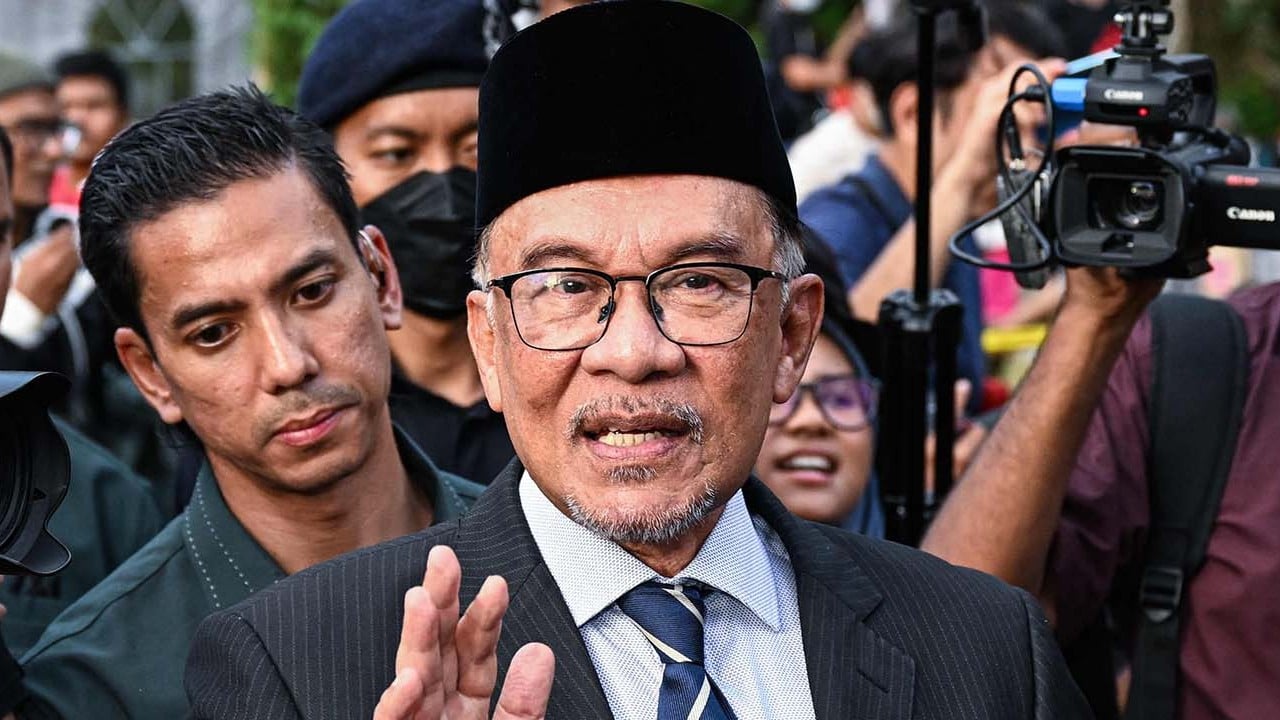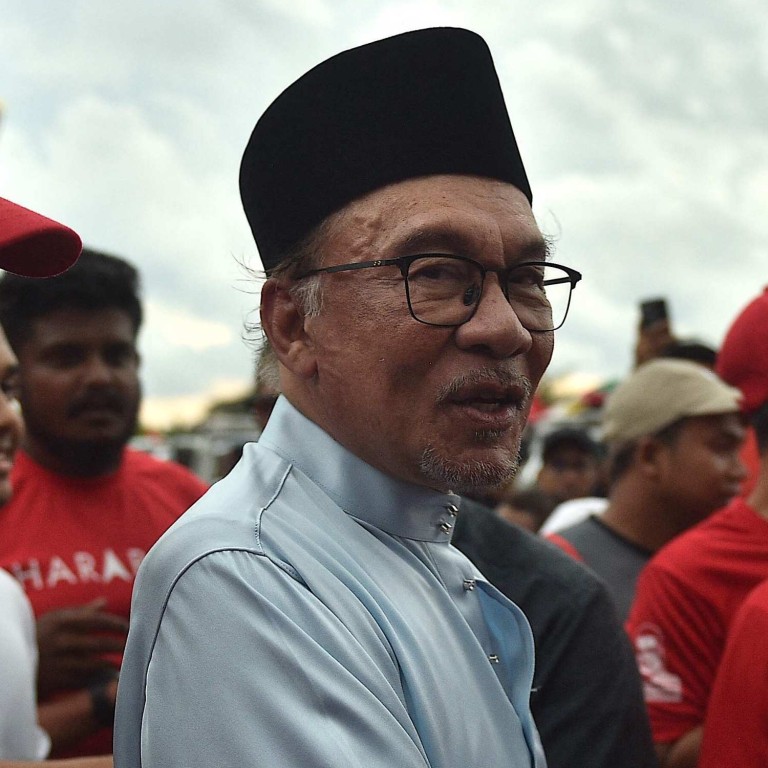
PM at last: How ‘irrepressible optimist’ Anwar Ibrahim went from prison to becoming Malaysia’s leader
- The Pakatan Harapan chief’s victory caps one of the most remarkable political turnarounds in modern Southeast Asian history
- Anwar, 75, tided through three decades of highs and lows with the belief that ‘freedom is part of the human endeavour. It must be part of our way of life’
Anwar’s victory deep into his seventies caps one of the most remarkable political turnarounds in modern Southeast Asian history: a student leader gifted with a rare political touch but whose ambitions were kneecapped by legal charges – including of sodomy in a Muslim-majority country where homosexuality is illegal – and years later the chicanery of his erstwhile mentor Mahathir.
“It must be part of our way of life.”
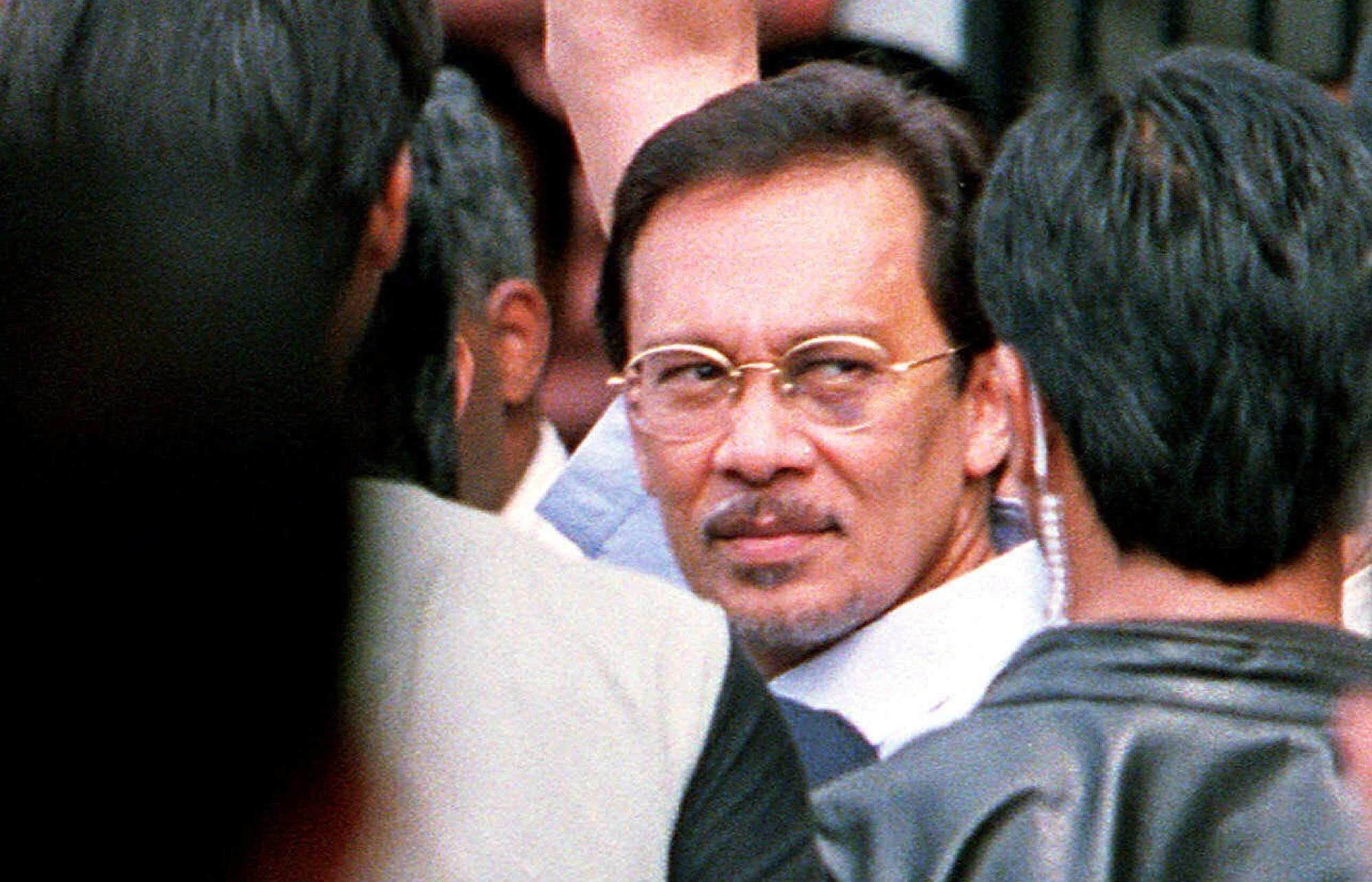
GE15: Anwar Ibrahim named Malaysia’s 10th prime minister
The king had a message for the entire cast of bitter foes who occupy Malaysia’s political stage over the central role they must play in defusing lingering post-election angst and rumour.
“HRH reminds all parties that the winners do not win all and the losers do not lose everything,” he said according to a palace statement. “Reach out your hands to each other and come together as members of the Dewan Rakyat for the future of our beloved nation.”
Anwar and PH appeared to have heeded the king’s request, with no major celebrations immediately planned which could have been seen to goad rival factions.
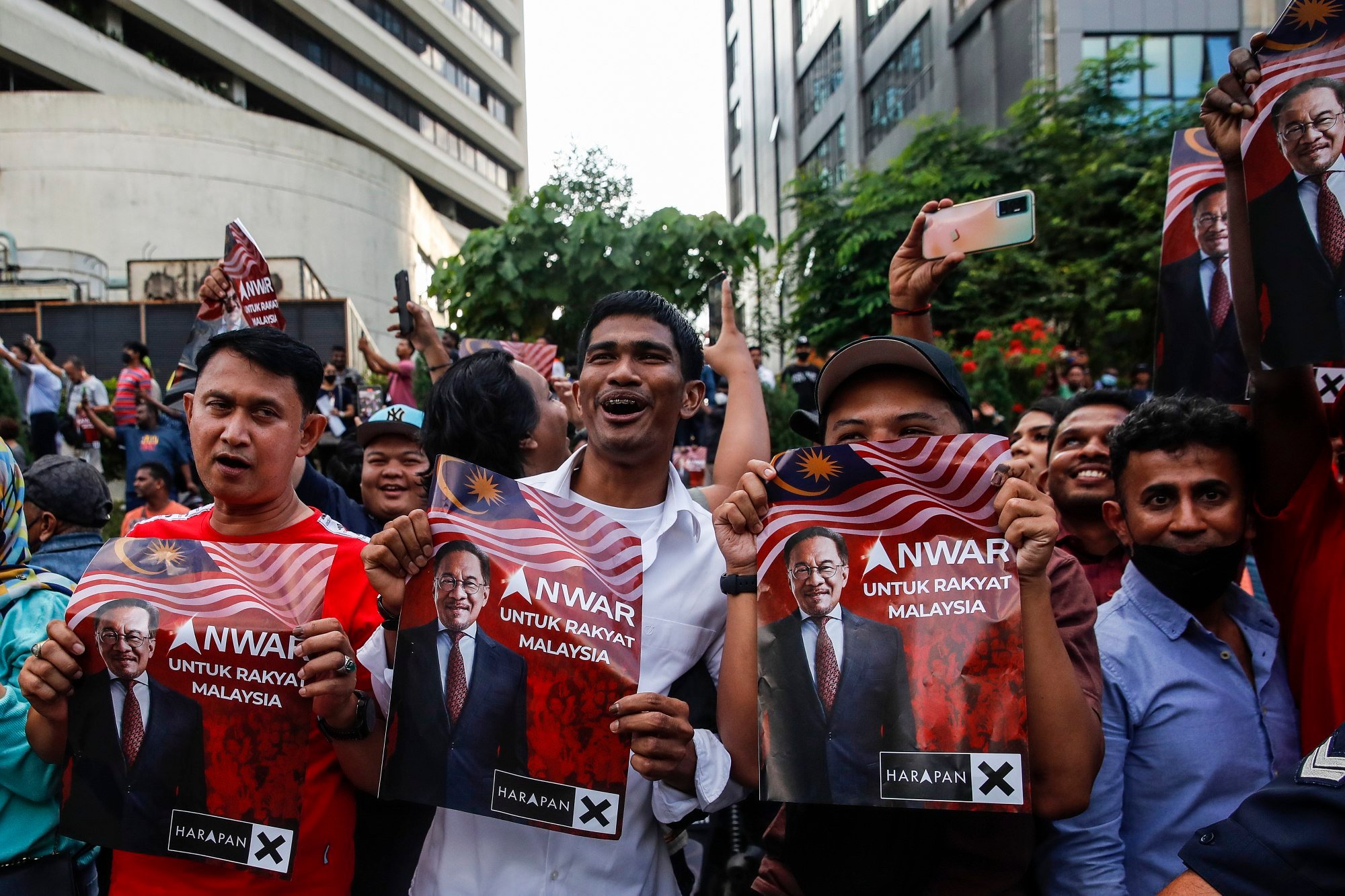
Old face, new broom
Anwar’s coalition entered the race on the back of public anger with the incessant politicking that has overshadowed cogent policymaking since the last polls in 2018.
“Let it be a lesson for the Malay community in the future; don’t give face and accept people who betray their trust,” said Anwar in a campaign rally two days before Saturday’s pivotal polling day.
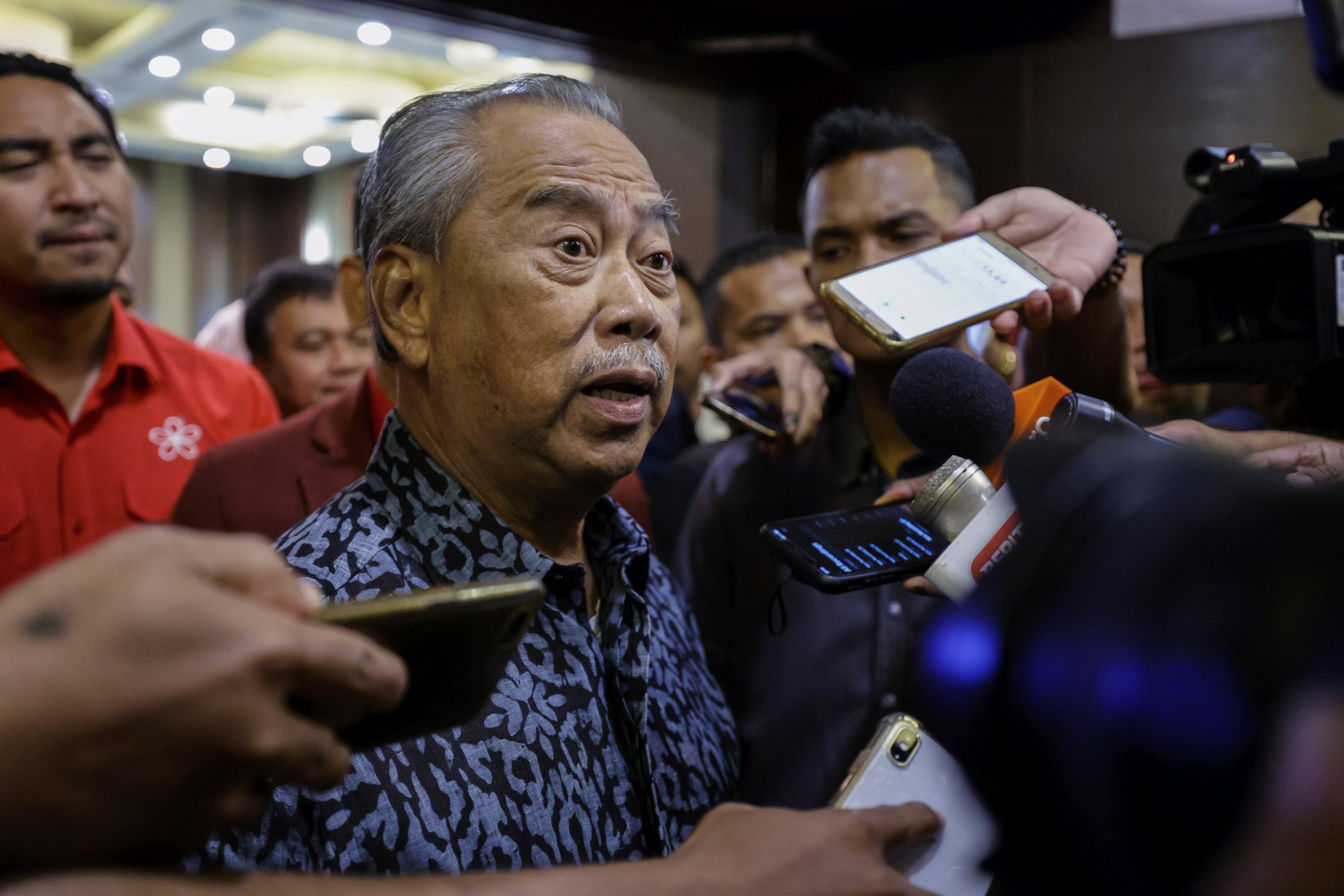
Yet Anwar’s hopes of a 100-plus seats were thwarted at the polls as support surged to Muhyiddin’s Islamist coalition Perikatan Nasional.
Anwar, despite his popularity and stature, barely scraped by in his own seat with a thin 3,736 majority over Muhyiddin’s deputy Ahmad Faizal Azumu in Tambun, Perak.
Perikatan Nasional also unseated Anwar’s daughter Nurul Izzah Anwar from the family seat of Permatang Pauh that she inherited from her father, who first won it in 1982.
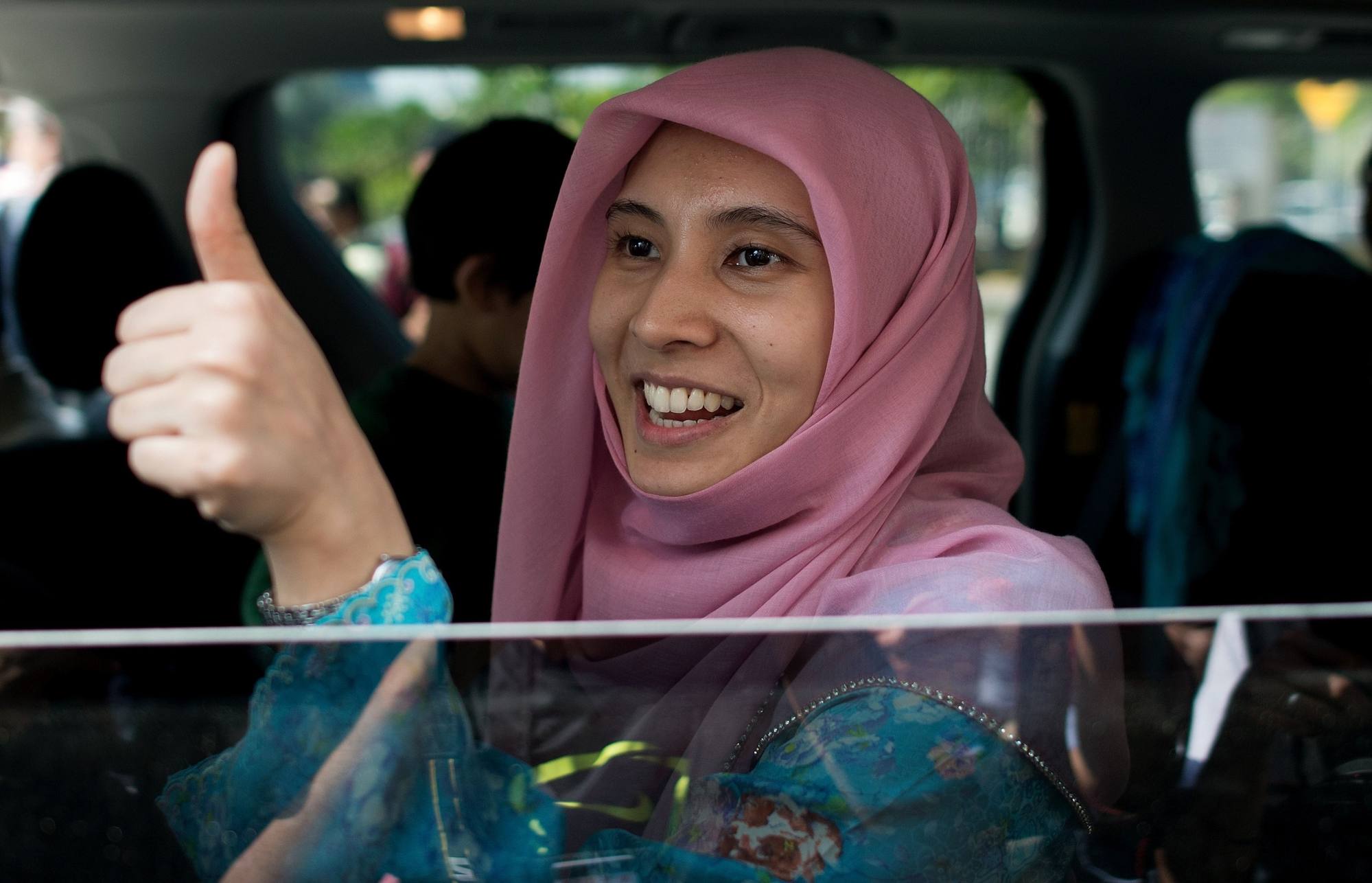
Anwar comes with heavy political baggage and his repeated failure to grasp the reins of the top office over the years had left him vulnerable to being derided as a perpetual “prime minister-in-waiting”.
But his backstory has given him a strong base, no matter the odds against him.
He emerged as the figurehead of Malaysia’s opposition in the late 1970s, his credibility bolstered by a 20-month detention under the then-Internal Security Act for demonstrating against rural poverty as a student activist leader.
Anwar co-founded the Muslim Youth Movement of Malaysia (ABIM) in 1971 as his vehicle to champion Malay and Muslim agendas. That history as an Islamist led some to be wary of him despite his embrace of the struggle for a multicultural Malaysia later in his life.
How the Mahathir-Anwar relationship shaped Malaysia’s politics
He was named by Mahathir as deputy prime minister in 1993 at the age of 46, and served as acting prime minister for three months in 1997 while Mahathir was on holiday.
Until now, that was as close to the top as he got. Anwar lost everything after he was sacked by his mentor in 1998 over allegations of corruption and sodomy.
That event led to his “Reformasi” movement, calling for reform against Mahathir’s strongman rule, which resulted in Parti Keadilan Rakyat that is now in the centre of the PH coalition.
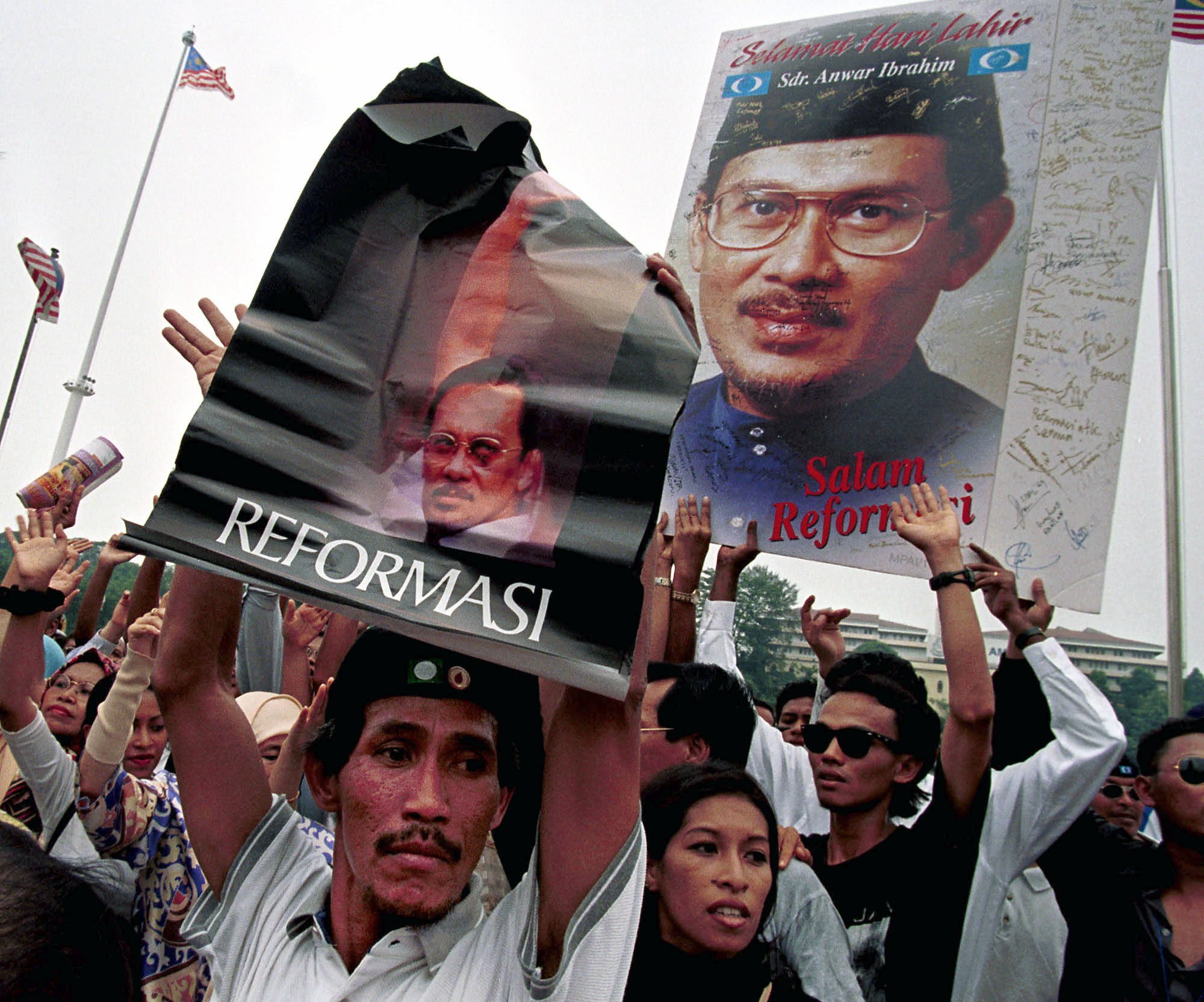
Anwar again emerged from jail, appearing poised for power with an energy belying the years he had lost to the legal system.
In his interview then with This Week In Asia, he commented on his daughter’s description of him as an “irrepressible optimist” saying “yes … I would say incorrigible”.
He was named successor to Mahathir who agreed to pass the baton to him midway through the term, as part of their electoral agreement. But Mahathir dithered and Anwar’s ambitions fizzled once more.
A new Malaysia?
PH’s coalition partners are yet to be announced, but Anwar will need to steer carefully through ethnic and political winds after a frenetic post-election period which has exhumed old divisions.
Malaysians, boosted by six million new voters, have pushed forward the Islamist Parti Islam Se-Malaysia, or PAS, heightening anxiety among ethnic Chinese parties.
But as the dust settles, Malaysia has its 10th prime minister and Anwar the eternal optimist has secured a seemingly impossible ambition for power, decades in the making.


